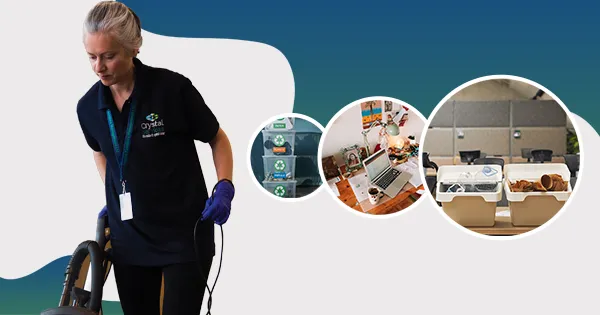Maintaining a clean and healthy living environment is crucial for university students. However, during construction or renovation projects in university accommodations, the management of post-construction debris and waste becomes a significant challenge. In this article, we will explore the importance of effective waste management in university accommodation and discuss strategies for ensuring a safe and sustainable living space for students.
What Is the Importance of Waste Management?
Proper waste management is essential for several reasons:
✔️ Environmental Impact
Improper waste management can lead to pollution, harm ecosystems, and contribute to the depletion of natural resources. Sustainable practices are essential to mitigate these effects.
✔️ Health and Safety
Inadequate waste handling can increase the risk of disease spread and expose residents to hazardous materials. This is particularly important in newly built or renovated spaces, where services such as builders cleaning ensure the safe removal of construction debris.
✔️ Aesthetics and Comfort
Effective waste management enhances the cleanliness and visual appeal of living spaces, making accommodations more comfortable and inviting for students.
How to Develop a Waste Management Plan?
A comprehensive waste management plan is crucial for efficient waste disposal and recycling:
✔️ Waste Segregation
Segregating waste into categories such as recyclables, non-recyclables, hazardous, and organic waste is fundamental to an effective system.
✔️ Recycling Initiatives
Introducing recycling programs within student accommodations encourages environmental responsibility. Common recyclables include paper, plastics, glass, and metals.
✔️ Disposal Methods
Proper disposal involves using designated bins, adhering to collection schedules, and working with waste professionals. Periodic deep cleaning services can support this effort by maintaining hygiene standards and ensuring thorough cleanliness.
In What Ways Can You Encourage Student Participation?
Student involvement is vital for the success of waste management efforts:
✔️ Awareness and Education
Educating students on sustainable waste practices fosters a sense of responsibility and helps reduce waste generation.
✔️ Promoting Responsible Behaviour
Encourage students to reduce single-use plastics, practice proper segregation, and engage in recycling activities.
✔️ Student-Led Initiatives
Student-led efforts such as awareness campaigns, waste audits, and recycling drives can significantly impact waste reduction and community engagement.
Collaboration and Partnerships
Collaborating with relevant stakeholders enhances waste management practices:
✔️ University Staff and Facilities Management
Coordination between students, staff, and facilities teams ensures consistent and effective waste handling across campus accommodations.
✔️ Waste Management Professionals
Working with professionals improves collection efficiency, increases recycling rates, and ensures compliance with environmental regulations.
✔️ Local Community Engagement
Engaging with the local community promotes sustainable habits beyond the university and fosters a broader culture of environmental responsibility.
How Can You Monitor Continuous Improvement?
Regular monitoring and evaluation help optimise waste management processes:
✔️ Data Collection
Tracking waste output, recycling levels, and disposal methods helps identify inefficiencies and areas for progress.
✔️ Feedback and Surveys
Encourage input from students and staff to refine practices and increase program effectiveness through continual feedback.
✔️ Continuous Education
Providing ongoing training keeps the university community informed about the latest waste management techniques and regulations.
Effective waste management is crucial for maintaining a clean, safe, and sustainable living environment in university accommodation. By developing a comprehensive waste management plan, encouraging student participation, fostering collaborations with stakeholders, and implementing monitoring and continuous improvement strategies, universities can create a culture of responsible waste management. Together, we can ensure a healthier and more environmentally friendly future for university students and the wider community.


